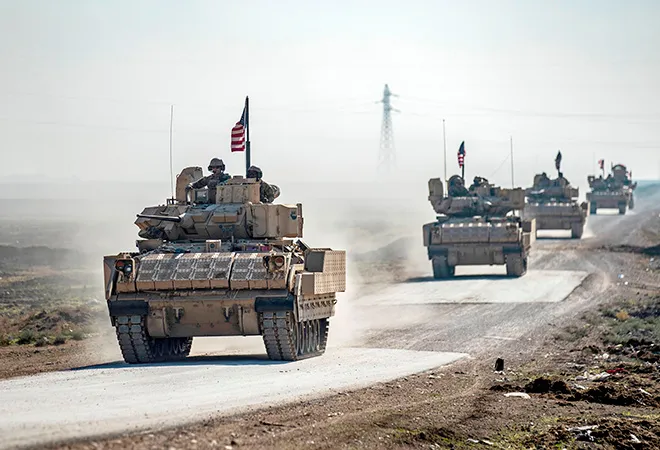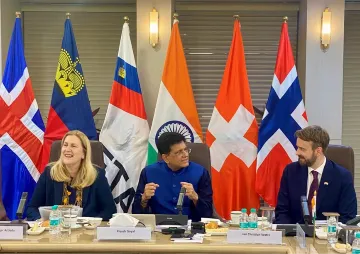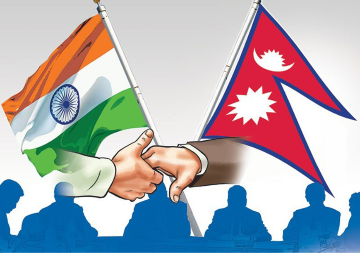
The Middle East and its fissures between the Gulf and Israel, which has recently observed a level of truce via the Abraham Accords that was largely aimed against Iran have to now prepare for a change of administration at the White House. Most Gulf capitals along with Israel were comfortable and supportive of Donald Trump’s presidency, which for the last part of the past four years had made cornering Tehran its single point agenda. This sat well with both Israel’s Prime Minister Benjamin Netanyahu and Saudi Arabia’s Crown Prince Mohammed bin Salman (MbS).
Last week, prominent Iranian nuclear scientist Mohsen Fakhrizadeh was assassinated in the outskirts of Tehran, making it the first such attack against Iranian scientists since 2012. The Iranians have already pointed fingers at Israel. Between 2010 and 2012, the peak time when Tehran was negotiating with the P5+1 group of countries, four Iranian scientists were assassinated in an attempt to thwart the country’s nuclear programme. Eventually, the negotiations bore fruit and the nuclear agreement, known as the Joint Comprehensive Plan of Action (JCPOA), was signed in 2015. In 2018, President Donald Trump decided to withdraw the US from the agreement, inflicting a gash on years’ worth of diplomacy which had fast-tracked Tehran out of global isolation. The Trump administration often threatened military action against Iran, assassinated General Qasseim Soleimani along with Abu Mahdi al-Muhandis and continued with some of the strictest sanctions against the seat of Shia Islam power.
Now, as Trump’s presidency comes to an end on 20 January, president-elect Joe Biden will take over a challenging job after four years of disruptions that were in fact palatable to many of America’s traditional regional allies. The biggest balancing act that the Biden administration will conduct in the Middle East would be on what kind of approach it will orchestrate on the JCPOA. Biden was Vice President when the deal was struck, and John Kerry, who was the then Secretary of State, is also making a comeback, although as envoy on climate change, and would still have access to Biden and his team as the chief diplomat who negotiated the nuclear agreement with Iran’s Javad Zarif, who is still foreign minister. A lot of the faces that made JCPOA possible, will be back in 2021.
The biggest balancing act that the Biden administration will conduct in the Middle East would be on what kind of approach it will orchestrate on the JCPOA
Also, over the past week, reports were rife that Netanyahu had flown to the Saudi city of Neom on the coast of the Red Sea to meet MbS, to push for Saudi to join the Abraham Accords with the UAE, Riyadh’s neighbour and close confidant. However, the Saudis seem to continue to balk at the prospect of normalising relations with Israel just yet, waiting for the Biden administration to come in and test the waters on what kind of relationship the president-elect chooses to develop with MbS, who has been given a free pass by Trump on issues such as jailing of activists and more serious acts such as the murder of journalist Jamal Khashoggi in 2018 at the Saudi consulate in Turkey.
For Israel, perhaps, it sees this transition period in the US between Trump and Biden as a window of opportunity to create a scenario where it becomes inherently difficult for the new presidency to cajole Iran any further, or at least, not in the near future. The calculations may not be only based on regional parameters, but also on the fact that Biden is expected to spend considerable time and effort in mending America domestically, from a botched response to the COVID-19 pandemic—which is now witnessing 200,000 cases per day in the country—to disruptions in social fabric, rise of right-wing extremism and other issues.
Within Iran, the issue of the assassination of Soleimani earlier and now Fakhrizade, both taking place within a year, will make it much more difficult for the likes of President Hassan Rouhani, who is preparing for elections slated for June 2021 and had already been fishing for a return to the JCPOA era. “Resolution of the problem is very easy, and Iran and US can decide to return to the conditions of 20 January 2017 . The main knots could be united by determination,” Rouhani had said. Meanwhile, Iran’s Supreme Leader Ayatollah Khamanei had earlier said the path to a return to JCPOA era is not going to be very easy.
The remaining 50 days before Trump leaves the White House could see the likes of Israel and Saudi push Trump to install further sanctions against Iran, making it difficult for Biden to rush into any normalisation practice with Tehran, a parallel to the Abraham Accords gifted to the US by both Netanyahu and UAE Crown Prince Mohammed bin Zayed al Nahyan. Arguably, Israel more than Saudi and the UAE is looking for foolproof insurance if Biden does prioritise bringing the US back into the JCPOA fold.
Outgoing US Secretary of State, Mike Pompeo made a visit to Turkey, Israel, UAE, Qatar and Saudi Arabia (France and Georgia were also part of this itinerary) this month as a possible swansong of his tenure. He also visited a settlement in the West Bank, a break from traditional US policy leading to anger amongst Palestinians but a sign of unconditional support to Israel. Earlier, Netanyahu became one of the last leaders to congratulate Biden, accepting Trump will not get a second term despite the president’s consistent and constant noise over his loss being due to unfair polls and fraud—a narrative perhaps Middle East leaders never expected to come so vociferously from Washington DC.
There is an inherent temptation to look at the Abraham Accords as a US policy success story under Trump, and while it is true in parts, it should be seen equally if not more as regional states taking stock of their own security, a long-standing demand of most policy makers and analysts alike in the West. Despite Trump being a favourable president for the Gulf, the fragility on display of the American security blanket, overnight reduction of troops, narratives of fewer military deployments, decision making via Twitter and so on accelerated the belief in both Riyadh and Jerusalem that both must protect their long-term interests. While Israel depends on the US for military technology and maintaining a significant edge over its regional friends and foes, the Saudis have depended on the US for the protection and sustainability of the House of Saud itself.
While Israel depends on the US for military technology and maintaining a significant edge over its regional friends and foes, the Saudis have depended on the US for the protection and sustainability of the House of Saud itself.
The final few weeks of the Trump administration could be led by abrupt decision-designed to prolong Iran’s sanctions tenure and block prospects of diplomacy. While some suggest a new wave of sanctions by Trump before he leaves office could take Biden up to two years to reverse (or a full tenure to exit from), it is clear that his presidency’s ‘maximum pressure’ policy has not gone exactly to plan despite significant setbacks to Tehran. Instead of hastened reactions to events such as the killing of Soleimani almost a year ago now, Iran has been more calculated and cautious. Whether that is by design or compulsions, is of course, another question.
By noon 20 January 2021, it will be clear whether the Trump administration wins by invoking high-handed policies and sanctions against Iran blocking Biden’s path or Tehran walks the time out by ignoring the provocations. Either way, until then, the entire Middle East will be navigating its geo-politics cautiously.
The views expressed above belong to the author(s). ORF research and analyses now available on Telegram! Click here to access our curated content — blogs, longforms and interviews.




 PREV
PREV


